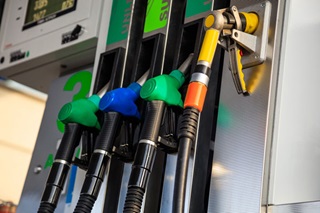Calor’s concern at unlawful and dangerous refilling of LPG cylinders at petrol stations

The company is aiming to raise public awareness of this highly dangerous and unlawful practice, which has resulted in series fires, injuries and a number of prosecutions – and to advise that cylinders should never be refilled at petrol stations.
There have been increasing incidents of members of the public purchasing adaptors on the internet and then using these to connect to filling nozzles to refill an empty gas cylinder, such as the type used for camping, caravanning or to fuel gas barbeques.
In 2013 the Health and Safety Executive prosecuted a man who had sold more than 700 potentially dangerous adaptors to members of the public, enabling LPG cylinders to be filled at petrol stations.
John Hodges, a Health and Safety Executive scientist, concluded that the devices were hazardous and likely to cause leaks. Magistrates at Preston County Court heard that the safe filling of LPG cylinders requires appropriate expertise and equipment and should only be undertaken by trained personnel on the cylinder-owning company’s premises, and, for safety reasons, are only filled to 80 per cent capacity.
This prosecution followed an incident at Rossendale in Lancashire which caused a dangerous fire on a petrol station forecourt that led to one man suffering serious burns.
UK health and safety law, particularly the Health and Safety at Work Act, the Dangerous Substances and Explosive Atmospheres Regulations, and the Carriage of
Dangerous Goods and Use of Transportable Pressure Equipment Regulations, imposes significant duties on petrol station operators to ensure safety.
Henry Betts, Head of Safety at Calor said: “We are extremely concerned about this trend. It is a serious accident just waiting to happen – again. We have thanked the Health and Safety Executive for its robust action in the past, but feel it needs to be doing more to prevent further incidents in the future by taking action against the companies and individuals who sell these dangerous filling adaptors.”
“The vast majority of petrol stations display notices which outlaw this sort of activity. Apart from the obvious dangers, if an accident takes place on a forecourt, the site operator could be liable for prosecution.”
Customers with an empty Calor LPG cylinder should always visit their local retailer to purchase a refill. A full list of retailers in the UK can be found on Calor's handy retailer finder tool.